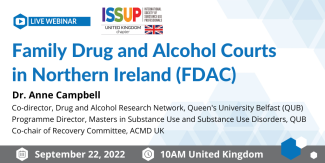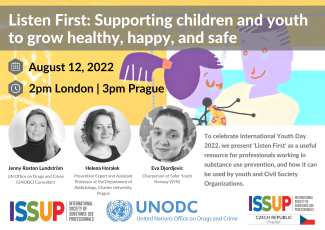Family Drug and Alcohol Courts in Northern Ireland (FDAC)
ISSUP UK are pleased to present their Webinar on the Family Drug and Alcohol Courts in Northern Ireland (FDAC).
Join as an individual or organization

This workshop will help clinicians grasp terms, ideas, and situations that trans and non-binary youth are experiencing today. Participants will be able to assess their own practices as it relates to transgender youth and be able to take with them an overarching understanding of the coming out process.

